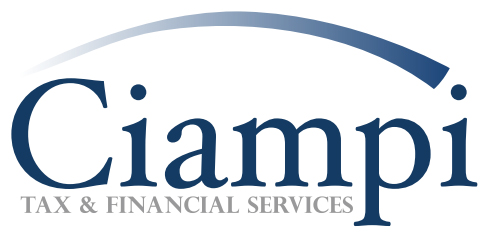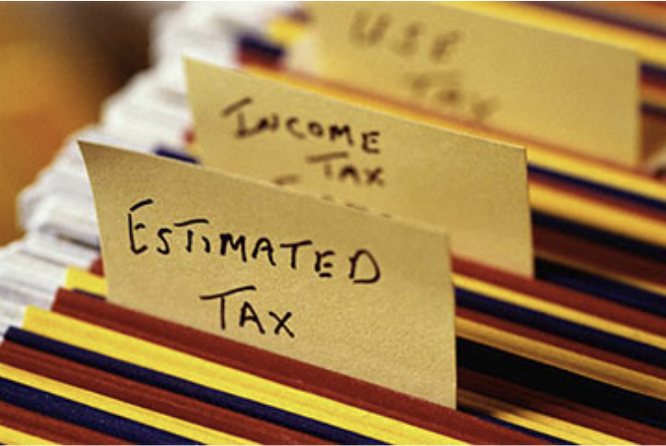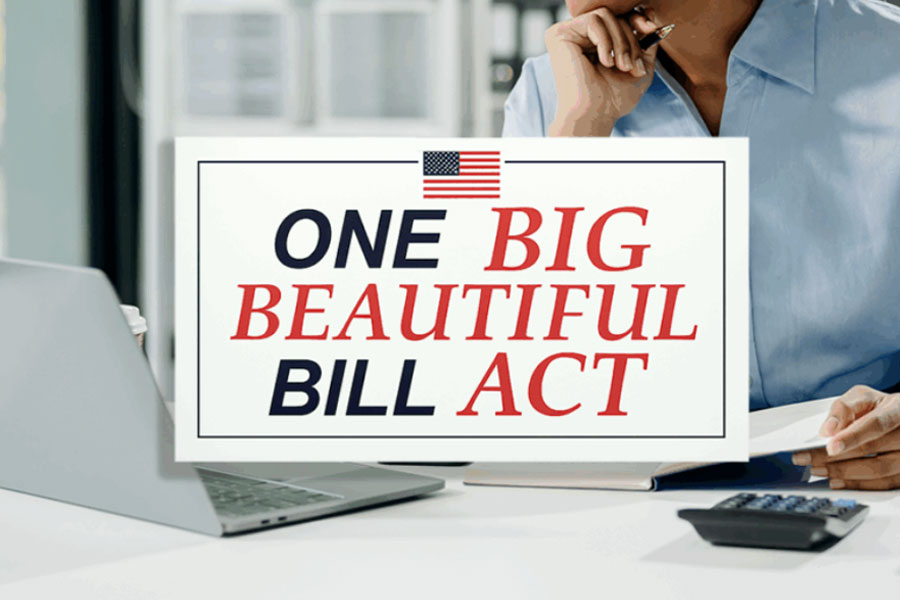Signed into law on July 4, 2025, the One Big Beautiful Bill Act permanently extends key provisions and introduces major updates across the tax code. These changes impact nearly every taxpayer.
Here’s what you need to know, organized by category.
For Business Owners
Qualified Business Income (QBI) Deduction
The 20% QBI deduction is now permanent for pass through businesses such as LLCs, S corps, and sole proprietorships. Service based businesses such as law, healthcare, and consulting now qualify at higher income levels, up to $75,000 for single filers and $150,000 for joint filers. A $400 minimum deduction also applies if your QBI exceeds $1,000.
SALT Cap Workaround for Pass-Throughs
The Pass Through Entity Tax (PTET) election is now expanded to allow all pass through businesses to deduct state taxes at the entity level, reducing federal taxable income. The SALT cap increases to $40,000 in 2025, with annual inflation adjustments through 2029. This benefit phases out at $500,000 MAGI for joint filers and $250,000 for married filing separately.
100% Bonus Depreciation
Business owners can now fully deduct the cost of qualifying property, such as machinery or vehicles, placed into service between January 20, 2025, and December 31, 2029, rather than depreciating it over multiple years.
1099 Reporting Thresholds
Freelancers and side hustlers will see a higher threshold for receiving 1099 forms. The 1099-NEC and 1099-MISC reporting threshold increases to $2,000 per payer. For payment apps like PayPal and Venmo, the 1099-K rule reverts to pre-2022 standards: you’ll only receive a form if you have over $20,000 in transactions and more than 200 payments in a year.
For Individuals
Standard Deduction
Starting in 2025, the standard deduction increases permanently to $15,750 for single filers, $23,625 for heads of household, and $31,500 for married couples filing jointly.
Senior Social Security Deduction
From 2025 through 2028, individuals age 65 and older can deduct $6,000 (or $12,000 if married filing jointly) from their taxable Social Security income. This deduction phases out at $75,000 for single filers and $150,000 for joint filers.
Tip Income Deduction
Workers in eligible occupations can deduct up to $25,000 in reported tips from their taxable income, from 2025 through 2028. This is an above-the-line deduction and does not require itemizing. MAGI must be under $150,000 (single) or $300,000 (joint).
Overtime Pay Deduction
Employees can deduct overtime pay, defined as wages for hours worked beyond the standard workweek, up to $12,500 for individuals or $25,000 for joint filers. This deduction also runs from 2025 through 2028 and follows the same income limits as the tip deduction.
Car Loan Interest Deduction
From 2025 through 2028, interest paid on personal-use auto loans is deductible up to $10,000 annually. The deduction is available whether or not you itemize and applies to most vehicles under 14,000 lbs, but excludes RVs and campers. Income phaseouts start at $100,000 (single) or $200,000 (joint).
Mortgage Interest Deduction
The bill permanently preserves the $750,000 mortgage interest deduction cap and reinstates the ability to deduct private mortgage insurance (PMI) premiums beginning in 2026.
Disaster Loss Deduction
Taxpayers impacted by federally declared disasters after December 31, 2024, can deduct personal casualty losses without meeting the 10% AGI threshold. Even non-itemizers can take the deduction by treating the loss as an addition to their standard deduction. You may also elect to claim the loss in the previous tax year for faster relief.
Gambling Loss Limitation
Beginning in 2026, you can only deduct up to 90% of gambling losses, and only up to the amount of your total winnings. The bill also expands the definition of “wagering losses” to include travel, lodging, and other gambling related costs.
For Families
Child Tax Credit (CTC)
The Child Tax Credit increases to $2,200 per child in 2025 and will adjust with inflation starting in 2026. The refundable Additional Child Tax Credit (ACTC) will also rise accordingly. The full credit remains available to individuals earning under $200,000 (single) or $400,000 (joint).
Child and Dependent Care Tax Credit
Beginning in 2026, the maximum percentage of care-related expenses eligible for the credit increases from 35% to 50%, giving working families more support for childcare and dependent care costs.
Dependent Care FSA Increase
Also starting in 2026, families can contribute up to $7,500 per year to employer-sponsored Dependent Care Flexible Spending Accounts up from the current $5,000 cap.
For Education & Savings
Trump Accounts
These new long term savings accounts are designed for minors under 18 and operate similarly to modified IRAs. Children born between January 1, 2025, and December 31, 2028, will receive a one time $1,000 government deposit when an account is opened. Families may contribute up to $5,000 annually, with investment earnings growing tax deferred. Contributions are only allowed until the beneficiary reaches age 18, and investments are limited to mutual funds and indexed ETFs.
529 Plan Expansion for K–12
Beginning in 2026, the annual withdrawal cap for K–12 private or alternative school tuition increases from $10,000 to $20,000. This change gives families greater flexibility to use education savings for a wider range of schooling options.
Final Thoughts
The One Big Beautiful Bill brings changes to federal tax policy that affect nearly everyone. Whether you’re a business owner, a working professional, a parent saving for college, or a retiree on a fixed income. This legislation introduces permanent deductions, expanded savings incentives, and targeted tax relief designed with you in mind. Many changes begin in 2025 or 2026, making now the time to prepare.
This blog post highlights some of the most impactful provisions, but it doesn’t cover everything in the bill. You can read the full text in the link below. We’ll soon be hosting a webinar for our clients to explore these changes in more detail. Be on the lookout and sign up for our newsletter for more.
Need help understanding what this means for your personal or business taxes? We’re here to ensure you take full advantage of every opportunity.
Sources:
U.S. House of Representatives. (2025). H.R. 1: One Big Beautiful Bill Act (119th Cong., 1st Sess.) (Enrolled Bill PDF). Congress.gov. Retrieved July 16, 2025, from https://www.congress.gov/bill/119th-congress/house-bill/1/text





